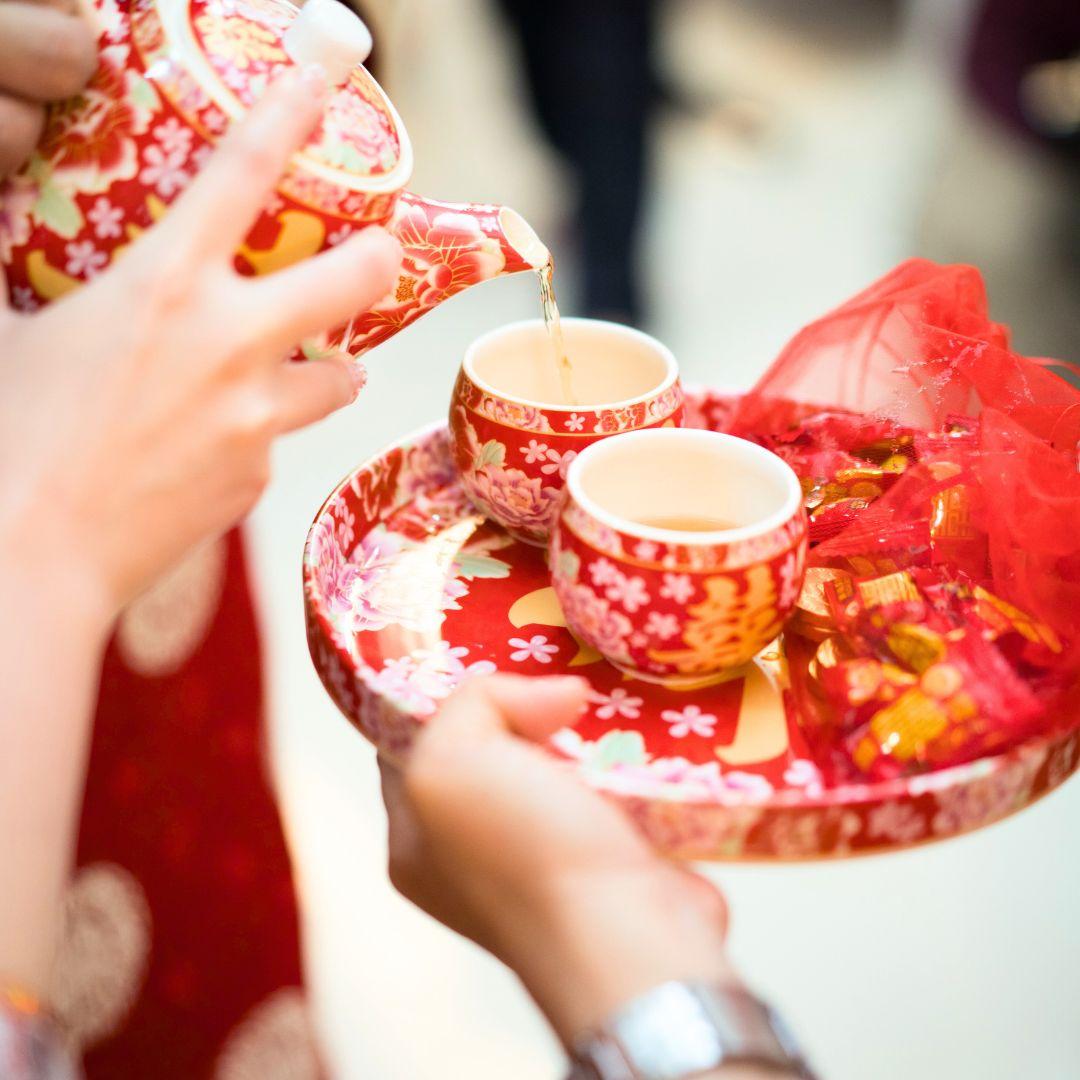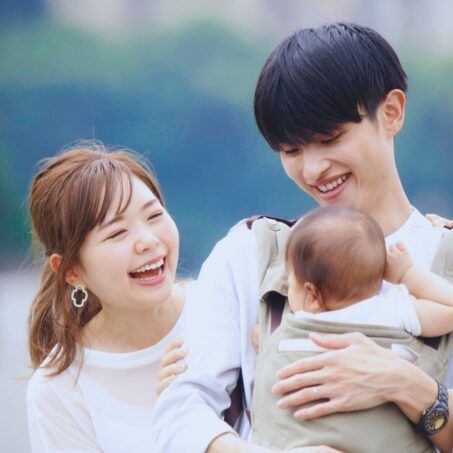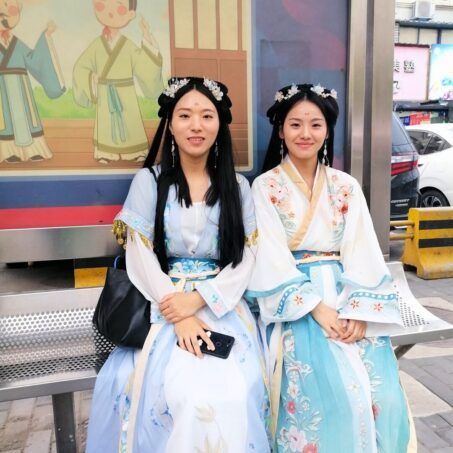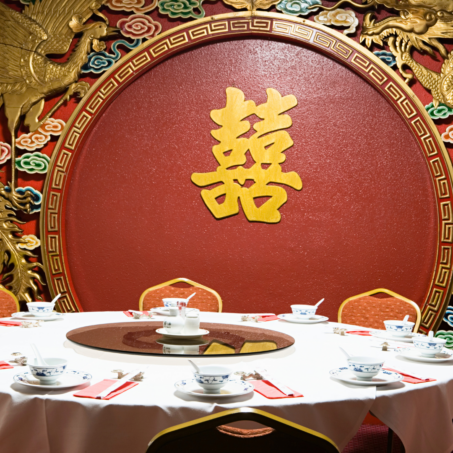With Chinese history spanning thousands of years, it’s no wonder that there are many ancient customs still practised today.
While famous traditions like 红包 hóng bāo (red packets) and 舞狮 wǔ shī (lion dance) live on to this day, there are scores of lesser-known traditions still going too. But some, over time, are being practised less and less.
In this article, we’re taking a look at some of the more popular traditions to do with marriage and family specifically. Our half Malaysian-Chinese copywriter, Natasha, interviewed her Mainland-Chinese husband, Jie, to compare experiences and see which practices – if any – are on their way out.
N: I really enjoyed it when we did 拍婚纱照 pāi hūnshā zhào (taking wedding photos months before the wedding). It was great not having to worry about squeezing in a formal photoshoot on the big day. Do all couples do this?
J: More or less, it’s expected that everyone does hunsha zhao before the wedding so the photos can be displayed on the day. It’s also about having fun together, because you don’t just get dressed in wedding outfits – you can wear all kinds of dresses and suits. They usually have a big choice at the studio you choose.
N: Remember how my friends pranked you with 堵门游戏 dǔmén yóuxì (‘door blocking games’ to test a groom’s love before he sees the bride)? I’d never attended a Chinese wedding that included it before ours.
J: They made me dance to your door! I think it varies from region to region, but I think most people still do it, yes. Everyone in my area (Yibin) always does it.
N: Have you heard of 闹洞房 nàodòngfáng or 闹婚 nàohūn (teasing both newlyweds with rude games) too? We didn’t end up doing them, but do others still?
J: It also depends on the region. It’s still done sometimes, but the games are less extreme and vulgar than they used to be.
N: How about the 敬茶 jìng chá (wedding tea ceremony)? Ours was quite short and in front of everyone, but at two weddings I went to, it was done privately.
J: Tea ceremonies are still a ‘must do’, but the way they’re done is probably different for different places and families too. It’s as much part of the wedding as the rest of the ceremony.
N: Babies next: after giving birth, some women do 坐月子 zuò yuèzi (‘sitting the month’). They take that first month to recover, eating specific foods and following certain well-being rules. Do you think women still observe this?
J: Sort of – it’s not as strict as it used to be, like women weren’t supposed to wash their hair for that whole month. It’s more like acknowledging zuo yuezi as a length of time a new mother needs to remember to rest and take care of herself. Some wealthier mums book themselves into luxury all-inclusive clinics dedicated to taking care of both mum and baby during zuo yuezi, but most stay at home with family.
N: Last question – I saw a TV show with a Chinese friend once where the characters held a 抓周 zhuā zhōu (‘grab anniversary’ – when a baby picks an object on their first birthday, predicting their personality/career) ceremony. We’d never personally seen a zhua zhou ceremony before, but she said that her family says some people still do it – do they?
J: Sometimes. I’ve also never taken part in one, but have heard of people doing it. It’s also a thing that used to be taken more seriously. It’d be a whole ceremony or party. But now it’s more like a small family thing sometimes done for fun. Not everyone does it.
N: I think there’s still a market for it – I saw you can buy a 30-piece zhua zhou set online. It’s so cute, it has a little toy flute and a mini abacus. But it doesn’t seem to be as much of a ‘must do’ tradition any more.
J: I think that’s right.
Want to learn more about Chinese traditions? The best place to do it is by visiting their actual birthplaces. Check out our homestay courses where you can learn Chinese Mandarin language and culture while staying in China and Taiwan here.





